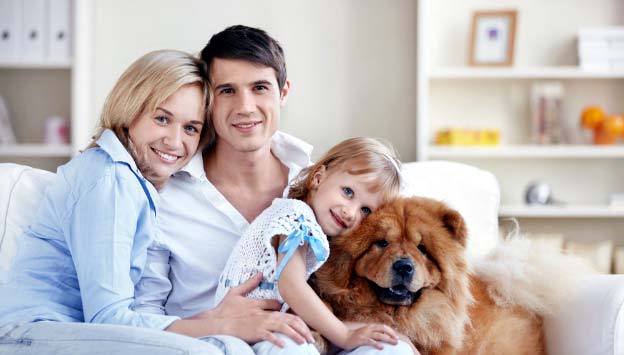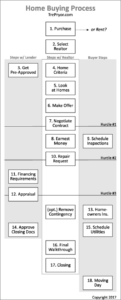Safety in the home is a prime factor. We should all diligently observe what is going on around us. For that reason, here are 20 extremely important tips for home safety that everyone should read. Take the time to remember these and you’ll improve your quality of life.

Let’s get started!
Fire Home Safety Tips
- To keep your home safe in the event of a fire, ensure you install smoke detectors. Replace the batteries at regular intervals. Routinely check to make sure they are working properly. Place fire extinguishers at key points in the house, especially those places where a fire is more likely to break out, such as the kitchen.
- Keep the surroundings of your house clean. Properly dispose of any dry yard trimmings to stop them from catching fire.
- Do not overload power outlets and extension cords. This will reduce the risk of sparking, which could cause a fire.
- Keep flammable items away from electrical sources, such as a gas range or fireplace. Teach your children about fire safety while you’re at it.
- Certain house appliances require additional ventilation, such as your furnace or any portable heaters. A few may even require a cooling system.
- Always unplug appliances from power outlets when they are not in use. Power surges can happen any time a device is plugged into an energy source. In certain areas or with homes of a specific size, you might want to install a lightning rod. A lightning rod will help protect your house from a lightning strike during a thunderstorm.
General Safety Tips for Children and Pets
- Keep harmful objects out of the reach of children and pets. Cutlery, cleaning agents, and fire igniters (e.g. matches or lighters) should be properly stored away after each use.
- See to it that railings on stairs and decks are sturdy and well-built. Ensure the spaces between the railings are not so wide that an infant can fit through them. Immediately fix any loose railings to improve overall safety for children and even pets.
- Always keep stairs clean, dry, and well-lit. Stairs that are cluttered with objects can lead to someone tripping. As we’re all aware, a fall on the staircase doesn’t typically end well for the person falling.
- If you happen to have a swimming pool, ensure it is adequately child and pet-proofed. We don’t want any emergency situations when an adult is not nearby.
- Keep all medications and other chemicals out of the reach of infants and pets.
- Install abrasives on the floor of your bathroom and bathtub to prevent people from slipping.
- Close the toilet lids after use to keep pets from drinking the water. It’s not clean water for them to be consuming.
- Remove valuable items out of the reach of pets or small children. Also, remove small items that pets or infants can easily choke on.
- Keep pets away from the kitchen, especially when cooking. It is not uncommon to trip over your pets as you move around while cooking. Train your pets properly to make certain that they don’t enter places where you don’t want them to be. Dr. Gary Richter, of Ultimate Pet Nutrition, says that “the best way to get your house pets to adhere to training is by adequately feeding them. This will also ensure they don’t endanger their safety and that of the house as they go sniffing around for something to eat.”
Other House Safety Tips
- When you’re going away on vacation, don’t announce that you’re leaving on social networks. Burglars often use the opportunity to break into your home and make away with your valuables.
- Keep your emergency numbers handy, in case of emergencies.
- Fix security lights in your yard to ensure any movement at night within the premises is noticed. There are many benefits to home security cams.
- Always look through a window or peephole before opening your door. Most of these are common sense but deserve this reminder.
- Keep the curtains closed at certain times, to make sure the inside of your house is not visible to those passing by.
- Request ID before you let a service person into your home. Criminals can obtain a fake uniform quite easily.
- If you happen to have a firearm, keep it out of reach of minors and preferably locked up. Also, to ensure general safety, see that you keep your firearm unloaded. To make things even safer, store the bullets in a separate place from the firearm.
Always remember, Safety First!



